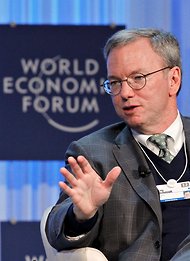 Arnd Wiegmann/ReutersBoris Collardi, chief executive of Juluis Baer.
Arnd Wiegmann/ReutersBoris Collardi, chief executive of Juluis Baer.
LONDON – The Swiss bank Julius Baer agreed on Monday to buy the private banking operations outside the United States of Bank of America Merrill Lynch, in a deal that will increase the European firm’s assets under management by 40 percent.
The acquisition is the latest consolidation move in the private banking industry, as firms look to bolster their operations to gain access to the new markets of emerging economies.
As part of this effort, Julius Baer will pay around 860 million Swiss francs ($882 million) for the American bank’s international wealth management business outside of the United States. The division has roughly $84 billion of assets under management.
Under the terms of the deal, Julius Baer will oversee up to an additional $74 billion of assets, which primarily come from wealthy clients in developing economies. The acquisition will increase Julius Baer’s assets under management to around $258 billion.
“This acquisition brings us a major step forward in our growth strategy and will considerably strengthen Julius Baer’s leading position in global private banking by adding a new dimension not only to growth markets but also to Europe,” the company’s chief executive, Boris Collardi, said in a statement.
Despite the bank’s large increase in assets under management, investors reacted negatively to the news. Shares in Julius Baer fell almost 6 percent in morning trading in Zurich on Monday.
The shareholder response to the announcement came after the Swiss bank said it would finance the acquisition through existing cash reserves and a $770 million rights offering. The bank said it would raise a further $257 million for potential future acquisitions and $206 million through hybrid bonds.
The firm also canceled a previously announced $510 million share buyback.
As part of the new share sale, Bank of America Merrill Lynch will be given around $246 million of Julius Baer stock, making the American firm a large shareholder.
Julius Baer said costs related to the acquisition would total about $320 million, while Bank of America Merrill Lynch would assume about $125 million of costs connected to the deal.
The deal is one of a number of acquisitions by Julius Baer in recent years. In 2009, it bought the private banking unit of the Dutch firm ING for around $500 million.
The deal is expected to close by early 2013. Perella Weinberg advised Julius Baer on the acquisition.
Article source: http://dealbook.nytimes.com/2012/08/13/julius-baer-to-buy-bank-of-america-unit/?partner=rss&emc=rss
